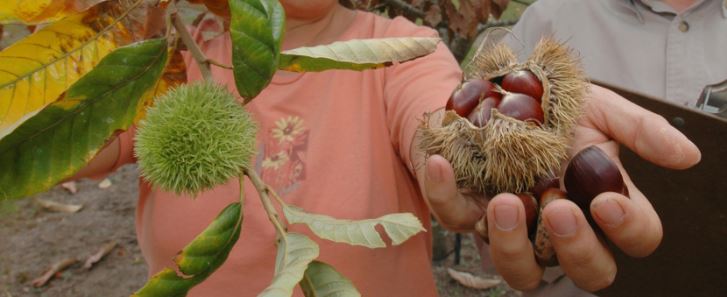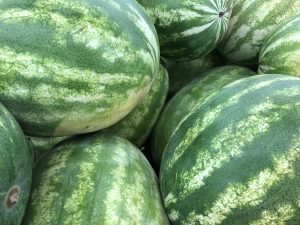
by Stephanie Herzog | Oct 11, 2019
Have you ever been bullied or know someone who has been bullied? I know I have. October is National Bullying Prevention Month. Each October since 2006, there has been a national effort to raise awareness about bullying and provide education and resources to try to prevent it. According to data from 2017, about 20% of youth ages 12-18 experienced bullying at school and nearly 30% reported cyberbullying during their lifetime. That is a lot of our country’s youth!
What Exactly is Bullying?
Bullying is unwanted aggressive behavior. Bullying must have a real or perceived power imbalance between the bully and the victim, where the bully uses their power to control or hurt their victim. The bullying behavior needs to be repeated over time, or at least have the potential to repeat over time.
There are three categories of bullying:
- Verbal bullying includes teasing, taunting, threats, or name-calling
- Social or relational bullying includes ignoring someone on purpose, ostracizing, spreading rumors, or embarrassing someone
- Physical bullying includes damaging belongings or harming another’s body such as spitting, hitting, pushing, rude gestures, or tripping

The constant and easy access of cell phones, social media, and the internet has increased the real dangers of cyberbullying. (Photo source: UF/IFAS)
Cyberbullying
Technology has changed the ways of bullying. Bullying is no longer only ‘picking on’ someone, making fun of them, calling them names, or ignoring them at school. The constant and easy access of cell phones, social media, and the internet has truly expanded bullying to an unthinkable, unending scale. There are many ways to bully someone online, including:
- Verbal attacks, mean messages, or rumors on social media accounts, online games such as Fortnite, or through email or text
- Releasing embarrassing or inappropriate pictures, GIFs, or videos online or through text (e.g. sexting)
- Creating fake profiles or hacking into someone’s account online in order to hurt that person
Perhaps one of the most dangerous things about cyberbullying is once something is posted online and is circulated, it’s very hard to permanently remove. This oftentimes makes escape from the bullying unusually difficult or even seemingly impossible. It’s so important to keep up with ways technology is advancing in order to protect ourselves from things like cyberbullying.
Effects of Bullying
The negative psychological effects of bullying are very real – for the bully, the victim, and those who may witness it.
For the bully, they have a greater risk of using substances, engaging in risky or violent behavior, being abusive in future relationships, committing crimes, and developing other external behavior problems.
Effects of bullying include low self-esteem, fear, loneliness, heartache, and potential physical illness. These effects put a widespread toll on the mental, physical, and social health of the victims and also those who witness bullying. The increased risk of using addictive and illegal substances, anxiety, depression, eating disorders or even becoming suicidal are to be taken seriously and should be treated appropriately. Seek out mental health professionals or physicians and consult with them on the best combination of treatment. These effects can last days, months, years, or even lifetimes depending on the person and the circumstance.
The Story of Amanda Todd
The story of Amanda Todd is an unfortunate real example of cyberbullying and how unforgiving and never-ending it can be. Amanda ultimately committed suicide to get away from it; she was only 15 years old. Her YouTube video, published in 2012 a month before she committed suicide, has 13.5 million views to date. To better understand the reality of bullying, please consider watching it or sharing it. However, viewer discretion is advised.
Bullying, harassment, discrimination, or any other type of negative, cruel, or harmful behavior is never okay or acceptable in any way. If you have been a witness of bullying or a bully, stand up to stop it! If you have been bullied or know someone who has, please seek help from caring professionals, family, or friends. Go-to resources are found below.
Additional Resources
Stop Bullying Now Hotline: 1-800-273-8255
- Available 24/7, managed by the U.S. Department of Health and Human Services
National Suicide Prevention Lifeline: 1-800-273-8255
- Available 24/7, there is an online chat option available here
The Trevor Project: 1-866-488-7386
- Available 24/7, suicide prevention help specifically for the LGBTQ+ community
- Texting and chat options are available here
National Eating Disorders Association: 1-800-931-2237
- Mon-Thu 9am-9pm, Fri 9am-5pm
The Cybersmile Foundation
STOMP Out Bullying
Stopbullying.gov
Sources
National Center for Educational Statistics, Indicators of School Crime and Safety Indicator 10: Bullying at School and Electronic Bullying, April 2019.
Cyberbullying Research Center
The Amanda Todd Legacy

by Heidi Copeland | Sep 13, 2019
The American chestnut tree, (Genus: Castanea dentata, Species: C. sativa, Family: Fagaceae) is a large monoecious deciduous tree. This big, beautiful tree provides green shade in the summer, a stunning array of fall foliage and a spinney cupule (bur) that holds and protects the chestnut during its growth and maturation. As its leaves begin to fall, so does the bur whereupon it splits and releases the chestnut. The American chestnut is important for both food and forage. This was of course until the American chestnut tree was devastated by chestnut blight-a fungal disease (Cryphonectria parasitica)) where upon it has been estimated that between 3 and 4 billion American chestnut trees were destroyed in the first half of the 20th century.

American/Chinese Chestnut
Photo Source UF/IFAS
However, through scientific research it has been discovered that the Chinese chestnut tree (Castanea mollissima) is recognized as being highly blight resistant (but not immune). Many places in the United States have replanted the American chestnut tree with the Chinese chestnut and its cultivars. In fact, there are several chestnut orchards.
The chestnut is classified as a nut.

Chestnut Tree
Photo Source: Vern Wilkins, Indiana University, Bugwood.org
However, it differs from most nuts, as it is low in lipid (fat) content – approximately three percent. Nonetheless, the chestnut is nutritious; it contains carbohydrates, proteins and is rich in vitamins and minerals. The mature chestnut (nut pulp) is more than 50 percent water thus special care must be taken to extend its storage so that it does not spoil.
Local, fresh chestnuts are generally only available in the fall. A good chestnut is fairly large, firm to the touch and feels dense. The USDA does not have any standards for grades of chestnuts although sometimes size standards are based on the number of nuts per pound.
According to the American Chestnut Foundation® if fresh chestnuts are to be stored for eating, store them in a paper grocery bag for up to two months. Leaving fresh chestnuts at room temperature for a few days helps their starches convert to sugar. For longer storage, put chestnuts in the freezer and use immediately after thawing or they will become mushy.
Chestnuts can be eaten in a variety of forms –
- Fresh – dry roasted or boiled
- Frozen
- Dried
- Canned
- Pureed
- Ground into flour (obtained by grinding dried and peeled chestnuts)

Three chestnuts inside the open but of the American Chestnut tree.
Photo Source: USDA Forest Service Southern Research Station, Bugwood.org
Cooking methods for chestnuts vary widely too. Customarily though, chestnuts are Dry-Roasted in the oven, over hot embers, on top of the stove in a skillet, or even in the microwave. Once peeled, the chestnut can be pureed, added to soups, stews, stuffing’s, and vegetable dishes or even turned into a decadent dessert.
- Heat a skillet on top of the stove or preheat the oven to 425° F
- Rinse the chestnuts in cold water. (this removes any bird droppings etc….)
- Using a sharp knife, score the flat side of each chestnut nut with “X”. (The chestnut is FULL of moisture, the “X” keeps it from exploding.)
- Using a roasting pan or skillet place the chestnuts in the oven, over an open fire, or on top of the stove.
- Dry roast, stirring every five minutes until the shells begin to split open. (At this point the shells are brittle and have curled back some at the X.)
- Remove from the heat when the insides feel soft. (This will depend on the nut but usually about 15 – 20 minutes.)
- Peel the shells off the chestnuts and enjoy warm or cold.
The internet contains a wealth of chestnut recipes. One I particularly enjoy is Chestnut Hummus. Instead of using your favorite bean, prepare a pound of chestnuts by either boiling or dry roasting.
When cool enough to handle toss all of the traditional hummus ingredients into a food processor and process until smooth. Serve in your favorite bowl drizzled with a bit of extra oil and favorite accoutrements.
Chestnut Hummus
1 pound prepared chestnuts
1 whole lemon, juiced
¼ cup tahini or 1/4 cup sesame oil
1-teaspoon cumin, whole or ground (or your favorite seasoning! – have you tried harissa?)
¼-cup oil
½ cup hot water, more if necessary to make a good spreading consistency
Salt to taste
Serve with your favorite accompaniments. (crackers, fresh sliced vegetables etc.)
Bon Appetite!

by Angela Hinkle | Sep 3, 2019
Hurricane season is June 1 to November 30, with peak season in September and October. And hurricanes are not the only disasters we have to contend with. Living Well in the Panhandle provides the trusted Disaster Resources you need so you know what to do to keep your family and you living well.
Disaster Resources
Below are helpful resources for preparing for and handling the aftermath of a disaster. For more information, please contact your local UF/IFAS Extension Office.
Food Safety
Is My Food Safe to Eat?
Keeping Your Food Safe During Emergencies: Power Outages, Floods, and Fires
USDA – A Consumer’s Guide to Food Safety-Severe Storms and Hurricanes Guide
Well Water Safety
Well Water Testing
Housing
Search for an open emergency shelter near you by texting SHELTER and your zip code to 4FEMA (43362) Example: SHELTER 01234

Lightning storm. Photo Source: UF/IFAS
Cleaning Up After a Hurricane
Safety Comes First!
Get the Right Tree Care Professional
Hiring an Arborist – Spanish
Cleaning Mold After a Flood
Hurricanes and Mosquitoes
Mosquito Control Tips for Homeowners
Money Management/Consumer Issues
Avoiding Fraud and Deception
Six Steps in Making an Insurance Claim
Replacing Lost or Damaged Documents
FEMA – Individual Disaster Assistance
FEMA – Interim Housing Resources
USDA Farm Service Agency Disaster Assistance
Disaster Recovery Loans
Tax Relief After a Disaster
Complaints – If you have a complaint about disaster relief assistance, contact the Department of Homeland Security’s Inspector General’s Office at 1-800-323-8603.
Family Health and Wellness
Call the Disaster Distress Helpline 24/7 for free counseling – 1-800-985-5990 (TTY) 1-800-846-8517
OR text TalkWithUs to 66746
Mental Health for Adults
Mental Health for Kids
Mental Health for Adolescents
Agriculture and Natural Resources
Practices to Minimize Flooding Damage to Commercial Vegetable Production
Florida Panhandle Agriculture
Florida Panhandle Agriculture Facebook

by Stephanie Herzog | Aug 24, 2019
September is National Preparedness Month, so right now is a great time to think about how you can be prepared, and then act on those thoughts and get ready for an emergency! This article will help get you thinking, give you some great starting points, and provide resources to turn to.
Emergencies Have a Wide Horizon
While hurricanes are likely the first thing panhandle residents think of when it comes to emergencies, are you prepared for others? Fires? Floods? Hail? Lightning? Tsunamis? Drought? Heat waves? Tornadoes? Possible winter storms? Marine oil spills? Major sewage problems? Other life-threatening medical disasters? Being prepared for a hurricane like Michael is vital to panhandle life, but it’s certainly wise to consider other possible disasters and to be prepared for anything.

Being prepared for an emergency can greatly reduce the stress it causes. (Photo source: Stephanie Herzog)
There are also so many ways to prepare for emergencies that it can be overwhelming to think about. Do you have sufficient food storage? What about clean water for your whole family (pets included)? How are you going to wash your clothes? How do you purify water? What if your toilet isn’t usable, what do you do? Can you safely start a fire if there’s no heat? What about shelter? How do you stop a gaping wound? How do you turn off the water to your house? What is the best evacuation route? How do you contact someone when there’s no power? Are those potentially life-saving prescriptions easily accessible? Where is the deed to your house, the title to your car, and your family’s vital identification documents? You’re filing an insurance claim, and you have no idea what brand your Smart TV was, where you bought it, how old it was, or how much it cost – what do you do?
Preparation Brings Relief
Have all of these questions got you thinking, but perhaps exhausted you? Now imagine that you could answer every one of these questions confidently – how do you feel? A weight lifted? Stress is a central source of fatigue for us all, and with it comes a variety of problems – mental, physical, financial, and social. Think of a time when you were prepared for the expected or unexpected – was your stress considerably less? Most likely it was. Preparation is a positive, proactive behavior that gives foresight into the unknown. Procrastination tends to be the default within a human’s nature, so being prepared doesn’t necessarily sound like a fun thing to do with your time. But it will be a game-changer for your life when the time comes that you have to react swiftly and decisively in the event of an emergency. The investment is well worth it!
However, you don’t have to do it alone. Thankfully, there are many professionals here to help you! Here are a few starter tips to aid you in the beginning of your preparation:
- Human Life. First and foremost, in an emergency the highest priority is that of preserving human life. Material objects can be replaced – a life cannot be. Always keep this in mind while preparing for and responding to emergencies!
- Sustenance Storage. Have adequate food and water storage for your needs. Label your food and water storage with the month and year to help track expiration dates.
- Canned and dehydrated foods are great for storage, and many items have a long shelf life.
- Remember one gallon of water per person/pet per day – store as much fresh water as you can! You can only survive a few days without water, but weeks without food.
- Plan in your near future to eat and drink the food and water supply that are nearing expiration and then replace the storage with fresh sustenance.
- 72-Hour Kit. Have a 72-hour kit for each member of your family, including pets. Backpacks or duffel bags are ideal grab-and-go containers. Keep a 72-hour kit both in your home and in your car.
- Review Annually. Pick one Saturday a year as your “emergency preparedness day” where you review all of your food and water storage, medical supplies and prescriptions, fire extinguishers, and all other emergency materials.
- Make an inventory and then head to the store to replace any expired or missing items.
- Clean and organize your storage space and emergency kits so everything is accessible.
- Evacuation Plan. Have an evacuation plan and put it on the calendar to practice it with your family – and even neighbors – every three months.
Start now to be prepared!
Additional Resources
Sources
Jaffe, E. (2013, March.) Why wait? The science behind procrastination. Association for Psychological Science. https://www.psychologicalscience.org/observer/why-wait-the-science-behind-procrastination
Steel, P. (2007). The nature of procrastination: A meta-analytic and theoretical review of quintessential self-regulatory failure. Psychological Bulletin, 133(1), 65-94. http://dx.doi.org/10.1037/0033-2909.133.1.65

by Dorothy C. Lee | Jul 21, 2019
Eating healthy is not something that just happens by going on a particular diet. In fact, the best kind of diet is where the right choices are made, and it becomes a way of life. Sometimes we need to know some ways to change the bad habits we have developed. There is no ‘quick fix’.

Tune Up Your Lifestyle
Photo Source: UF/IFAS
With today’s fast-paced lifestyles sometimes we feel we don’t have the time to do the things we know we should. For instance, to get more exercise, do things like park a distance from the store when you go shopping, walk up and down the stairs instead of taking the elevator, walk to lunch, or even turn up the speed on regular activities you perform around the house.
When grocery shopping choose foods from the basic food groups (fruits, vegetables, whole grains, lean protein, and reduced-fat dairy products) to round out a healthy meal plan.
Convenience foods are a part of today’s lifestyle, but they often lack nutritional quality, texture, and flavor. Preparing foods at home can be healthy and economical. You can boost nutrition and flavor by adding fresh herbs, spices, and aromatic vegetables to the meal menu.
Foods and beverages high in sugar add empty calories to the diet and contribute no nutritional value. Read labels to determine the amount of added sugar in food products. Choose lower calorie beverages.
Experiment with new food items. Try adding different fruits, vegetables, or grains to your diet. For example, try tropical fruits such as mango, guava, papaya, or grains as quinoa, barley, or millet, to add vitamins, minerals and fiber to the diet.
Before you go out to eat, don’t starve yourself. Drink water before the meal to avoid overeating or eat a snack before dinner and you won’t be tempted to overeat.
When socializing don’t meet at eating places. When you do dine out, cut out fried main dishes or ones with heavy sauces and gravies. Eat smaller portions and don’t go back for seconds. Order low-fat foods when possible. However, keep in mind that you too need to allow for indulgence along the way.
Be active! Physical activity has health benefits. Being physically active not only burns calories, it aids in physical strength, and cardiovascular health. U.S. Dietary Guidelines recommend being physically active at least 150 minutes a week for adults. (https://health.gov/dietaryguidelines/).
Chances are, along with a healthy diet and regular physical activity, your tune up will result in living a healthy lifestyle.
https://www.freshfromflorida.com/Consumer-Resources/Buy-Fresh-From-Florida/Tropical-Fruit
https://www.tropicalfruitgrowers.com/
For further information, contact:
Dorothy C. Lee, C.F.C.S.
UF/IFAS Extension Escambia County
3740 Stefani Road
Cantonment, FL 32533-7792
(850) 475-5230
dclee@ufl.edu

by jbreslawski | Jul 18, 2019

Photo source: UF/IFAS Northwest District
Have you noticed recently that there have been many sales on watermelon at your local grocery store and farmers’ markets and roadside stands have an abundant supply? That is because watermelon and July go together like peanut butter and jelly or bacon and eggs. This cool and refreshing fruit is now in season locally. Whether you like to spit seeds or prefer the seedless variety, this fruit is a healthy addition to your plate. Naturally low in sodium and calories, watermelon is an excellent source of vitamin A and can help keep you hydrated. It also is an excellent source of the antioxidant, lycopene (which gives the melon meat that pretty reddish-pink color). To select the best watermelon, look for one that is heavy for its size, has a uniform shape, and a dark, dull green color. A yellow spot on one side means that the fruit has been given time to ripen in the field and develop flavor.
Do not forget to give your watermelon a good rinse under cool water before slicing. Putting a knife through that melon can carry all of the bacteria from the rind and spread it onto the fruit. Since watermelon is not usually cooked, that means that bacteria will not be killed and you have a chance of getting a foodborne illness. Remember to do this with your cantaloupe and other melons too. Too much watermelon? Try serving watermelon in different ways like in a melon salad, or even in, or alongside, chicken salad. Watermelon should be refrigerated after being cut and can be frozen too. Use chunks of frozen watermelon in smoothies and other drinks too.
Here is a recipe for a bubbly, refreshing watermelon drink from Fresh From Florida to serve at your July picnic:
FLORIDA WATERMELON FIZZ
INGREDIENTS: 5 cups Florida watermelon (seeded and cubed); Florida honey, to taste; 2 cups sparkling water; one lemon, juiced; Fresh mint sprigs for garnish
PREPARATION: Add watermelon, honey, and lemon juice to a blender and process until smooth. Strain puree through a fine sieve or strainer. Fill four glasses with ice. Evenly distribute the strained juice into each glass. Top each glass with sparkling water and stir once. Garnish with fresh mint sprigs.
https://www.followfreshfromflorida.com/recipes/florida-watermelon-fizz/#














